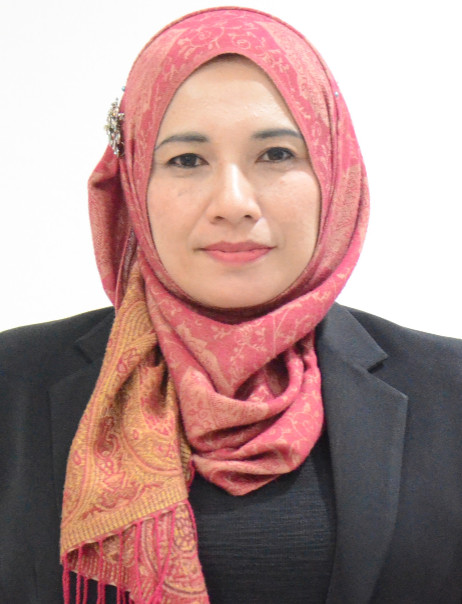
By Suhaily Shahimi

In today’s fast-paced, data-driven world, the role of internal auditors is evolving rapidly. As organizations face increasing expectations for transparency, accountability, and risk management, auditors are no longer confined to manual checklists and retrospective reviews. Instead, they are expected to harness advanced technologies, analyze large datasets, and provide real-time insights. This shift places a growing emphasis on digital readiness, particularly among the younger generation entering the profession.
To address this need, a hands-on workshop titled “Internal Audit Data Analytics Software – Alteryx” was held on 16 December 2024 at the Faculty of Business and Economics, Universiti Malaya. Conducted as part of the Undergraduate Accounting Program under the Internal Auditing course, the workshop brought together 50 enthusiastic students from accounting, business administration, and finance backgrounds. Led by me, the initiative offered students valuable exposure to Alteryx, a globally recognized self-service data analytics platform widely used in audit, finance, and operations.
The session featured Mr. Ts. Ahmad Hadzramin Abdul Rahman, Founder and Managing Director of OR Technologies Sdn. Bhd., and his team of experienced trainers and facilitators. Participants were guided through real-life applications of Alteryx, starting from importing and cleansing data to performing calculations, reconciling records, and visualizing results using tools like Tableau. For many students, it was their first opportunity to work with such an advanced platform in a structured, audit-specific context.
Alteryx’s visual interface and drag-and-drop workflow provided an accessible entry point for students to understand and practice data analytics without the steep learning curve of traditional coding-based tools. The software’s capabilities allowed them to perform common audit procedures such as matching asset and liability records, filtering irregular transactions, replacing null values, and generating summary reports with just a few clicks. These processes mirror real tasks performed by auditors in banks and public institutions, making the workshop a highly relevant and practical learning experience.
Beyond ease of use, one of Alteryx’s biggest advantages is its ability to automate repetitive tasks, freeing up time for auditors to focus on value-adding activities such as risk analysis and fraud detection. Alteryx can integrate data from multiple sources, clean and standardize it quickly, and run complex analytics with high accuracy. This supports continuous auditing practices and provides auditors with timely, actionable insights. Its compatibility with visualization tools such as Tableau and Power BI enhances audit reporting and supports better decision-making at management levels.
For Generation Z students, who are digital natives, the workshop was more than just a technical training—it was an introduction to the analytical thinking and digital competency increasingly demanded in the modern workplace. Alteryx not only supports data preparation and automation, but also cultivates foundational AI skills such as pattern recognition, logic-based decision-making, and workflow optimization. These are essential attributes as internal auditors adopt more predictive, forward-looking roles within governance structures.
The hands-on use of Alteryx highlighted the importance of precision and efficiency in audit analytics. Through tools such as formula, filter, and summarize, users were able to construct logical workflows for audit testing and produce outputs suitable for real-time assurance. The interactive nature of the experience proved effective in building confidence and inspiring greater interest in data analytics as a potential career pathway.
Of course, like any powerful technology, Alteryx presents some challenges. While it offers user-friendly features, it still requires users to understand data structures and logic rules to build accurate workflows. For first-time users, especially those without prior exposure to data analytics, there is a learning curve in interpreting errors, ensuring data integrity, and selecting the right tools for each task. Additionally, institutional access to software licenses and sufficient computing infrastructure can be a limiting factor in some universities or smaller organizations.
Despite these challenges, the overall learning experience far outweighs the initial hurdles. As students grow familiar with Alteryx, they develop key professional attributes: critical thinking, attention to detail, and the ability to interpret data with audit judgment. These are skills that will remain relevant even as technologies evolve. The availability of Alteryx certifications also adds value by giving students industry-recognized credentials, enhancing their competitiveness in job markets and internship applications.
The success of the workshop reflects a broader need for universities to embed data analytics training into audit education. As noted by Mr. Ahmad Hadzramin, countries such as the United States have already integrated Alteryx into their academic syllabi. For Malaysia, adopting similar models will help ensure that local graduates remain competitive in a rapidly digitizing global economy. Internal audit functions are no longer confined to compliance but play a strategic role in advising organizations, assessing risk, and contributing to business improvement. The integration of Alteryx into the classroom bridges the gap between theory and practice, equipping students with skills they can immediately apply during internships and in future audit roles.
The workshop also aligns with industry demand for auditors who can handle complex data environments, reduce manual processes, and deliver timely insights. In an era where governance and assurance depend heavily on data integrity and analysis, tools like Alteryx offer significant potential to elevate audit quality. By exposing students to these tools early, institutions like Universiti Malaya are cultivating a generation of auditors who are not only tech-savvy but also capable of navigating the future of internal audit with confidence.
Ultimately, the Alteryx workshop represents a forward-looking approach to audit education. It empowers Gen Z students to become more than just users of technology—they become architects of efficient, data-informed audit processes. As the profession continues to transform, such initiatives are critical in preparing auditors who can uphold trust, drive innovation, and contribute meaningfully to organizational resilience in a data-centric world.

Dr Suhaily Shahimi is a Senior Lecturer at the Faculty of Business and Economics, Universiti Malaya,
















